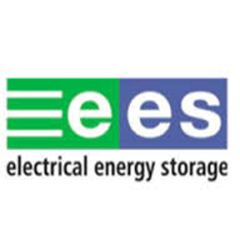Large-scale storage systems at ees Europe 2017
Munich, May 16, 2017 – With their capacity to uncouple the generation of clean power from consumption and ease the burden on grids, large-scale storage systems will play a central role in the energy supply of the future. This is because they allow flexible coordination of energy supply and demand. From May 31–June 2, 2017 in Munich, ees Europe, Europe’s largest and most visited exhibition for batteries and energy storage systems, offers an overview of the versatile applications for large-scale storage systems. Here, suppliers, manufacturers, and users of stationary and mobile electricity storage systems have the opportunity to share information and gain insights into the future of modern energy supply.
Energy storage systems are set to play a central role in the energy supply of the future: As the use of renewable energy sources becomes more widespread, it will be increasingly important to guarantee a reliable power supply and smart energy management. Storage systems allow electricity to be retrieved even at times when cloud formations or windless conditions prevent the generation of clean power. Furthermore, they can help to connect different generating units to create virtual power plants, and thus ensure a reliable energy supply across entire regions. The potential for use of such storage systems in Germany is far from being exhausted, however: The German Energy Storage Association (BVES) put the total market for large-scale storage systems at some 35 megawatts in August 2016. By January 2017, the cumulative capacity had already reached around 120 megawatts, and the association expects approximately 200 megawatts to be available by December 2017. The BVES estimates that somewhere in the region of 600 projects have been completed in Germany in agricultural settings, apartment buildings, trade, commerce, and industry to date. Demand for large-scale storage facilities is rapidly increasing.
Use of industrial-scale storage systems
One important application of large-scale storage systems is in industry, where they are used for peak shaving. Surplus energy, produced for example at midday, can be captured by the storage devices and then released on demand, for instance at times when large amounts of electricity are required. Power supplied by the electric grid is reduced dramatically as a result, and costs fall. Businesses are then able to benefit from so-called ‘atypical grid usage’. If they predominantly consume energy at times when the general grid load is light, they pay significantly lower tariffs. “Large-scale storage is essential to distributed, green, reliable energy supply systems. We are delighted to be presenting our innovations at ees Europe, and to have the opportunity for discussions with a wide range of trade visitors here,” states Daniel Hannemann, Managing Director of TESVOLT GmbH.


























